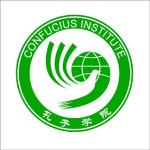A Confucius Institute will soon open on campus, expanding opportunities for UT students and others to learn Chinese, experience Chinese culture, and travel abroad.
Confucius Institutes are non-profit public institutions run in cooperation with Chinese partner universities and overseen by Hanban, a Chinese Ministry of Education subsidiary. They typically offer for-credit and non-credit Chinese language courses, sponsor cultural activities, and help local schools provide more education about China.
UT is partnering with Southeast University in Nanjing, one of China’s oldest universities and one of its most highly ranked universities in scientific research and development. A US university needs a Chinese university partner before it can apply for an institute.
Chancellor Jimmy G. Cheek said the institute will enhance undergraduate and graduate education—key goals in the university’s Top 25 journey.
“Having a Confucius Institute at UT will provide a multitude of opportunities for us,” he said. “It will let us increase our Chinese language instruction and offer more cultural activities. This fits perfectly into our Ready for the World goal to equip our students with the experience and knowledge they need to live and work in a global environment.”
Pia Wood, associate provost and director of the Center for International Education, said the Confucius Institute will open the door for more student exchanges. It also will allow UT to expand its outreach to the local community through cultural activities and travel opportunities for Knoxville-area residents who want to learn more about China firsthand.
“And we may be able to provide help for area high schools that want to expand their Chinese education offerings,” Wood said.
Wood said UT spent nearly two years laying the groundwork to open the Confucius Institute, and a group of faculty and administrators have gone to Beijing to sign the agreement.
Representing UT in China are Susan Martin, senior vice chancellor and provost; Scott Poole, dean of the College of Architecture; R.J. Hinde, associate dean and chemistry professor; Masood Parang, associate dean and engineering professor; Pia Wood, associate provost and director of the Center for International Education (CIE); and Alisa Meador, assistant director of CIE. Three UT representatives currently working in China also may be in attendance: Shih-Lung Shaw, geography professor; Yang Zhong, political science professor; and Guoxun Chen, assistant professor of nutrition.
An inauguration ceremony is planned later this year for UT’s Confucius Institute. Officials from Southeast University, Hanban, and the Chinese embassy will be invited, as well as state and local dignitaries.
UT’s Confucius Institute will be the third in Tennessee.
There are now Confucius Institute at more than 300 colleges in more than ninety countries, including about seventy institutions in the United States.
The first US Confucius Institute was established in 2004 at the University of Maryland. Among the universities that have Confucius Institutes are Columbia, Stanford, and the universities of Alaska at Anchorage, Delaware, Hawaii at Manoa, Kansas, Massachusetts at Boston, Minnesota, New Hampshire, Texas at Dallas, Toledo, and Utah; Portland, Kennesaw, San Francisco, and Wayne State universities; and the State University of New York.
—
C O N T A C T :
Amy Blakely (865-974-5034, ablakely@utk.edu)
